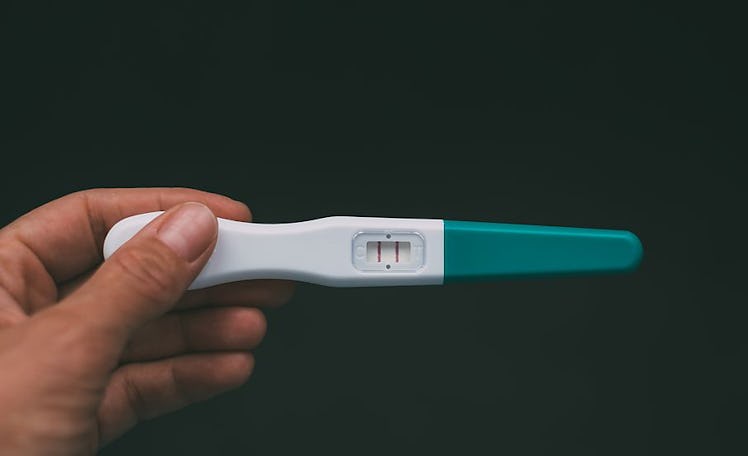
5 Ways You Can Still Get Pregnant While On The Pill, Even If You Think You're Being Safe
We all know that having unprotected sex can not only be harmful to our health, but it can also result in unplanned pregnancy. Many people, however, don’t know that there is still a chance — albeit a very small chance — you could get pregnant on birth control pills if you’re not being careful.
While there’s no need to worry yourself into a panic, it’s never a bad idea to have your bases covered. Chances are, most of us have forgotten a pill or taken it late from time to time, and spent the entire rest of the month low-key panicking about it. It’s important to take into account that even though the pill has a ton of awesome benefits, according to Planned Parenthood, one out of every 100 woman using the pill perfectly gets pregnant. Because most people aren't perfect, the efficacy of the pill drops down to 91 percent, meaning nine out of 100 women get pregnant on the pill every year.
These statistics shouldn’t scare you, since almost no medication can or should claim to work 100 percent of the time. Assuming you’re not quite ready to end up with a one-way ticket to baby-town, though, there are some ways you can make the odds of your birth control pill failing you a lot slimmer.
1. Forgetting Pills Or Not Taking Them On Time
According to Planned Parenthood, not taking birth control pills as prescribed is the biggest reason oral contraception fails. But life happens, and even the most militant of birth control users might forget or do something as harmless as miscalculating the time difference while on vacation. While it’s not necessary to take it down to the same millisecond every day, it is important that you take it around the same time — especially if the pill you are prescribed is progestin-only, or you could end up with quite the… surprise.
2. Taking It With Other Medications
Anyone who’s ever been to the doctor has probably been asked, "Are you taking any other medications?" before being prescribed something new. This is because sometimes certain active — or, on rare occasions, inactive ingredients — might interfere with each other. According to WebMD, the same is true of birth-control pills.
Most birth control pills are composed of some combination of the female hormones estrogen and progestin. The good news is that you don’t need to be too concerned when it comes to commonly prescribed medications like antibiotics. The only antibiotic that has been proven to negatively impact the efficacy of the pill is Rifampin; the good news is that this antibiotic is most commonly prescribed to treat tuberculosis, so you’re probably in the clear.
According to Planned Parenthood, there are also specific types of medications used to treat fungal infections, HIV, and seizures that could counteract certain birth control pills, so it’s always a good idea to let your doctor or specialist know the specific birth control you are taking before you start taking any new medication.
3. Storing Them In High Temperatures
If you’re like me and frequently leave your pills at the bottom of your purse or in the glove compartment of your car, then this could spell some trouble. According to BabyMed, you should be making sure your pills are stored in temperatures under 77 degrees F. Humidity is also a concern, making the bathroom also not the greatest place.
4. Taking St. John’s Wort
St. John’s Wort is a herbal supplement commonly used to treat mild to moderate depression. According to WebMd, it’s also capable of making a lot of other medications less effective. There have been several reported cases of unwanted pregnancy by women who were taking the pill in combination with St. John’s Wort, so if you’re not looking to get a bun in the oven, this herb should most definitely be avoided.
5. You’ve Just Started Taking It
According to Planned Parenthood, if you’ve just started taking birth control pills, it’s important to note where in your cycle you are. If you start taking the pill directly after your period ends, then you’re good to go. But let’s say you’re in the middle of your cycle and don’t want to wait 'til the end of your period to start your new life as a pill poppin’ woman. This is totally fine, but Planned Parenthood notes that you definitely need to use another form of protection for the first seven days to avoid getting pregnant.
If you ever have questions regarding the ins and outs of your chosen method of birth control, then never hesitate to reach out to your doctor or another trusted medical professional. It’s your body, and you should feel completely comfortable exploring all of your options before deciding on the one that’s best for you.
Check out the entire Gen Why series and other videos on Facebook and the Bustle app across Apple TV, Roku, and Amazon Fire TV.